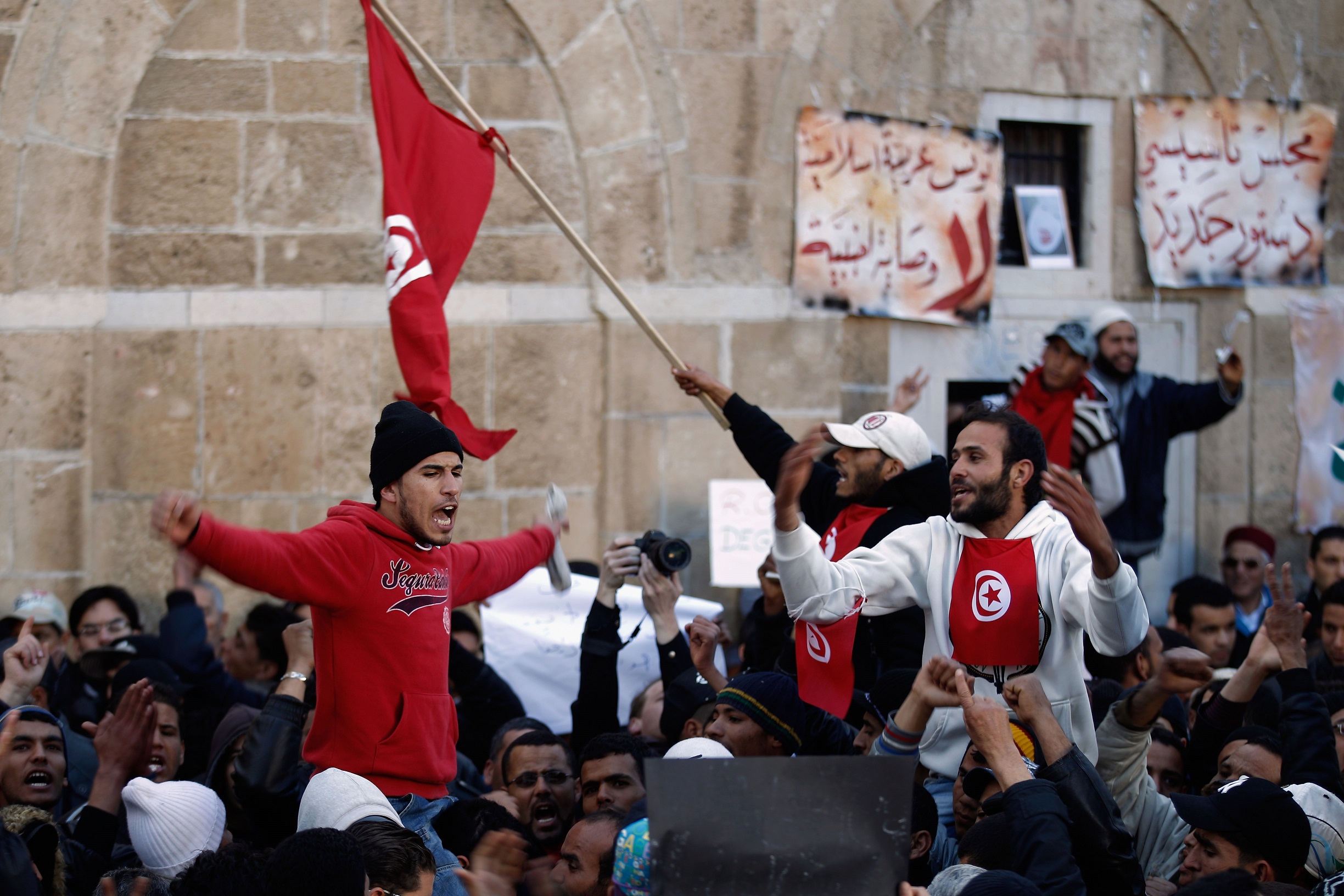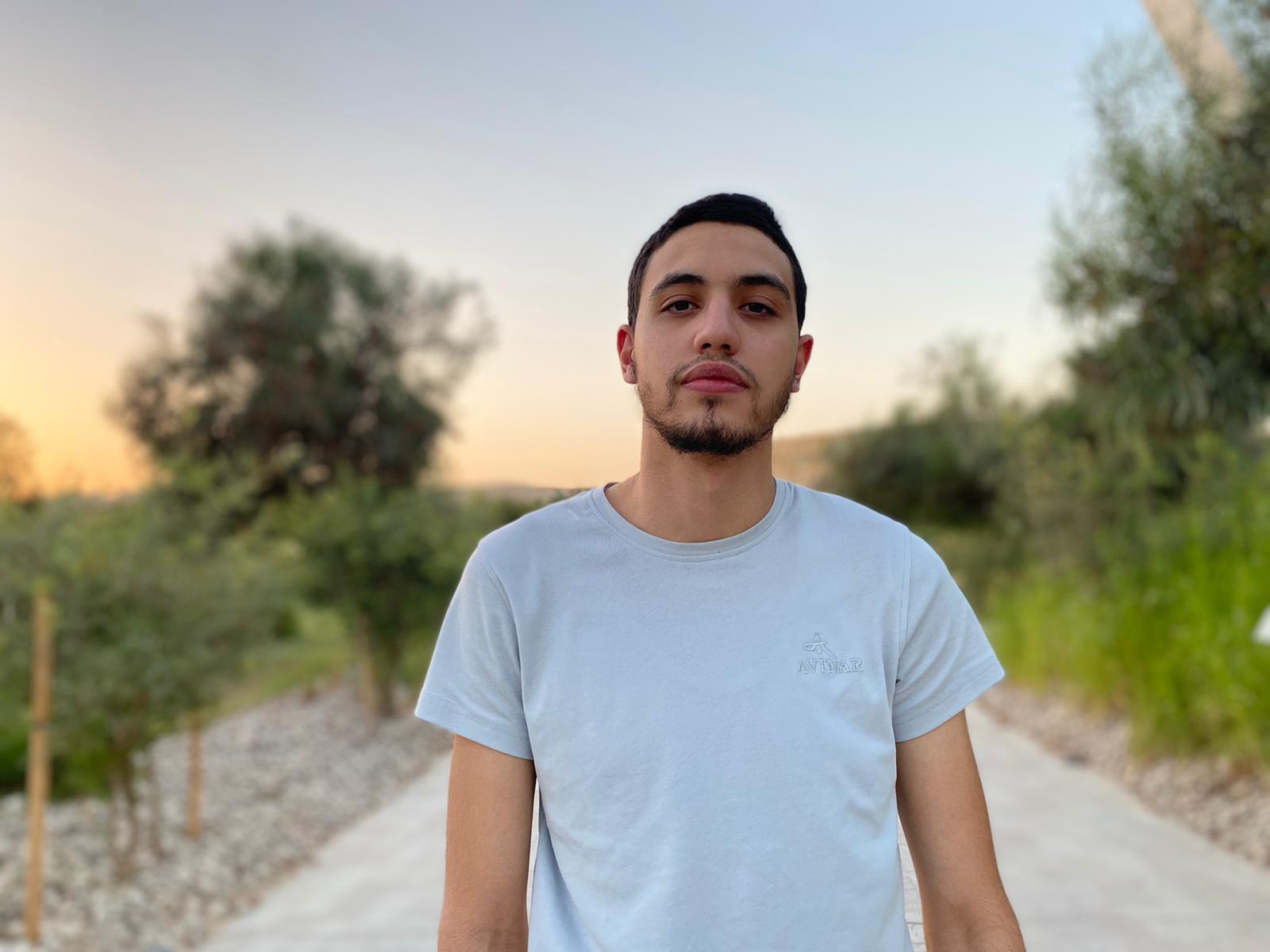"وصلنا خطاب تاريخي، خطاب ثوري، سيغير العديد من الأشياء في حياة التونسيين، في حرياته في حياته..."، هذا ما قاله الإعلامي سامي الفهري (مالك قناة الحوار التونسي حاليًا) في برنامج تلفزيوني بثته قناة (تونس 7) بحضور عدد من الضيوف؛ كرئيس نقابة الصحفيين ناجي الباغوري، وشخصيات حقوقية وإعلامية أخرى، عقب خطاب الرئيس السابق زين العابدين بن علي للتونسيين (1) يوم 13 يناير 2011.
كانت تلك جملة تعكس إلى أي حد كان الإعلام التونسي حكرًا على الدولة، وذلك من خلال امتثاله لأوامرها، ولفترة طويلة.
إعلام ما بعد الثورة.. حرية أم انفلات؟
عاشت الصحافة التونسية أصعب أيامها بعد الثورة، إذ شهدت تحولًا جذريًا لم تتهيأ له، وتعاملت مع تجربة، جاءت تحت تأثير "جرعة مفرطة" من حرية التعبير، اعتبرها العديد فريدة من نوعها في الوطن العربي. فكيف تعامل الصحفيون مع هذا التحول؟
بعد الثورة مباشرة، تم حل وزارة الاتصال، المشرفة آنذاك على قطاع الإعلام. تبعها تغيير اسم القناة الوطنية التابعة للدولة من "تونس 7" إلى " التلفزة الوطنية التونسية"، التي تغير توجهها بالكامل، من خلال مواكبة أحداث الثورة أولًا بأول، وتعددت معها البرامج الإذاعية والتلفزيونية والمقالات الصحفية الناقدة للرئيس السابق ونظامه في مختلف المؤسسات الإعلامية.
يقول عماد بربورة، رئيس تحرير أخبار (الوطنية1 والوطنية2)، والذي يعتبر أيضًا أول مذيع تونسي يبث خبر هروب بن علي بعد الثورة: "نجحنا في تحويل الإعلام التونسي من حكومي بتوجه أمني إلى عمومي شعبي".
هذا الهامش الكبير المفاجئ من الحرية في مجال الصحافة تسبب في كثير من الأخطاء والمشاكل من طرف الصحفيين التونسيين، أدى إلى اضطراب كبير في الصحافة التونسية، خاصة فيما يتعلق بمسألة انتهاك القواعد الأخلاقية والمهنية مثل الخصوصيات والتحريض على العنف...إلخ.
انتشر أيضًا ما يعرف بمفهوم "صحافة التضليل" التي تنتهك قيم المهنة، تحت يافطة حرية التعبير. ولعل أبرز مثال الادعاءات التي جاءت في إحدى الصحف المحلية والتي تزعم "قيام إمارة إسلامية" في تونس، عبر مقال نشرته تحت عنوان: "سجن أول إمارة سلفية في تونس"، تلاه تقريرفي قناة الوطنية الأولى خالٍ من أي أدلة مقنعة، ليتبع ذلك نفي هذه الأخبار من أهالي المدينة ووزارة الداخلية (3).
ومن الضغوط التي واجهها الصحفيون بعد الثورة هي رقابة الشارع، حيث وجدوا أنفسهم في مواجهة حملة " لجنة اعتصام الأحرار لتطهير إعلام العار"، رافقها اعتصام دام لشهر ونيف أمام مقر التلفزة التونسية. وتعليقًا على هذه الحملة، تقول الصحفية ليلى بن عطية الله: "لم تشملني هذه التهمة في البداية، لكنها أصبحت جاهزة لكل من يخالف رأي مطلقها".
وفي السياق نفسه، تضيف عطية الله: "بعدها لحقتني هذه التهمة من قبل مجموعة من السلفيين تطلق على نفسها "أنصار الشريعة" إثر حلقة تحدثنا فيها عن التيار السلفي في تونس، استضافت كلًا من المفكر الإسلامي "محمد الطالبي" والكاتبة "ألفة يوسفي" حيث عرض أحد الضيوف حديثًا ضعيفًا، وحين سألته عن مصدر هذا الحديث ردت علي هذه الجماعة بالتكفير واتهموني بالفجور، لقد أًصبحت الساحة الإعلامية منصة للتشهير".
وكنوع من تنظيم القطاع ومحاولة إصلاحه، تدخلت النقابة الوطنية للصحفيين التونسيين وأسست مجالس للتحرير، وتم انتخاب رؤساء تحرير وأقصي الصحفيون المحسوبون على النظام السابق.
حاول الصحفيون في هذه الفترة إصلاح قطاع الصحافة وتنظيم ذواتهم وبناء ضوابط تخولهم من استغلال هذه الحرية دون تجاوزها، حيث تم في البداية تأسيس الهيئة العليا المستقلة للاتصالات السمعية البصرية بتونس (الهايكا)، وهي وسيلة رقابة قانونية تنظم القطاع من خلال مراقبته وتسليط العقوبات عليه في حال مخالفته للبنود المنصوص عليها. ثم جاءت مبادرة النقابة الوطنية للصحفيين التونسيين بإنشاء (مجلس للصحافة) سنة 2011، والذي كان من المخطط إطلاقه سنة 2012.
لكن الحاجة إلى إحداث هيئة رقابة قانونية (الهايكا) سبقت هذه الفكرة من حيث الأهمية عند المجلس التأسيسي التونسي وتم تغييب ملف إنشاء المجلس لسنوات، إلى أن أُعلن عن انطلاقه رسميًا يوم 20 أبريل/نيسان 2017 من قبل هياكل في مهنة الصحافة بالشراكة مع الرابطة التونسية للدفاع عن حقوق الإنسان كممثل للجمهور كما تم تكليفه بإعداد "مدونة أخلاقيات المهنة".
أكد بيان نقابة الصحفيين على أن "المجلس هيئة خاصة مستقلة غير ربحية، تعمل على إرساء التعديل الذاتي لوسائل الإعلام وفقًا للمدوّنة وحماية حرية الصحافة والدفاع عن حق المواطنين في الحصول على معلومات ذات جودة".
تبع هذا البيان تصريح نقيبها، ناجي الباغوري، الذي قال إن الهدف هو "الوصول إلى إعلام يتماشى مع عملية الانتقال الديمقراطي، وهذا غير متوفر حاليًا"، مشيرًا إلى أن هذا المجلس "سيدعم صحافة الجودة ويحمي المشهد الإعلامي من خلال تأطير وتكوين الصحفيين وتوعية الجمهور وتوجيهه نحو الإعلام المهني". أما فيما يخص التمويل، أوضح الباغوري أن نصفه سيكون من الدولة والنصف الآخر من الجمعيات الداعمة لمجلس الصحافة.
يعتبر تأسيس مجلس للصحافة في تونس، فكرة حديثة وغير متحققة في غالبية الدول العربية، ولكن، كيف نظم الصحفيون أنفسهم بشكل عملي؟ و كيف التفوا حول هيئة واحدة؟
بسبب الاختلافات والمشاكل التي قد تحصل بين الصحفيين، نص الإعلان العالمي لأخلاقيات المهنة للصحفيين على أن "كل من يمتهن هذه المهنة مطالب بالاعتراف باختصاص هيئات التنظيم الذاتي للصحفيين والتي تكون بعيدة عن جميع التدخلات مهما كان نوعها".
واجه المجلس انتقادات واسعة من الصحفيين خاصة في ما يخص تركيبته، وأكدت ذلك عملية سبر الآراء التي قام بها الأكاديمي والأستاذ بكلية الصحافة وعلوم الأخبار بتونس، الصادق الحمامي، على مدى أربعة أيام (25 -28 أيار/مايو 2020).
اعتبر 122 صحفيًا من أصل 160 شاركوا في هذه الدراسة، أن المجلس عبارة عن "محكمة شرف" يتجه إليها المواطنون لكي تصدر قرارات في مجال الصحافة.
أما فيما يتعلق بالتعديل الذاتي في مجال الصحافة، فهو أن ينظم الصحفيون أنفسهم من خلال وضع مجموعة من القواعد ، تضمن احترامهم للمهنة وتنظيمهم فيما بينهم.
محاولة التنظيم الذاتي لم تكن سهلة كما توقع البعض، لذا تقول عطية الله: "في البداية اصطففنا وراء الشارع التونسي ولم تكن لدينا ضوابط، ركزنا أكثر على الجيش، حاولنا أن نؤكد على وجود دولة قائمة وأن مؤسساتها لم تسقط، حاولنا طمأنة الناس مهنيًا كانت اجتهادات فردية، كنا نستشير زملاءنا ونحاول التقرب من بعضنا، وعدنا إلى ميثاق شرف كانت قد أقرته إذاعتنا فيما سبق".
كان التحدي الأول الذي واجهته عملية التنظيم الذاتي هو اصطفاف الصحفيين وراء شخصيات سياسية أو رجال أعمال، ما جعل المهمة صعبة أمام حالة الاستقطاب الشديد.
تعتبر عطية الله أن تعيين رئيس التلفزة الوطنية من طرف رئيس الحكومة تدخلًا سياسيًا صريحًا في الخط التحريري، بينما يقول الصحفي عماد بربورة إن هذا التعيين يتم بالتشاور مع "الهايكا" التي لها الكلمة النهائية المتمثلة في الرفض أو الموافقة.
تعتبر هذه التجربة الصحفية الأولى من نوعها عربيًّا، وكذلك فقد صُنفت تونس الأولى عربيًّا و72 عالميًا من حيث حرية الصحافة حسب منظمة "مراسلون بلا حدود".
لكن هل يمكن القول بعد سنوات من ثورة الربيع الديمقراطي إن الصحفيين استطاعوا بالفعل تنظيم أنفسهم بعيدًا عن حالة الاستقطاب التي تعيشها تونس اليوم؟
المصادر:
-
سجنان- ----https://www.babnet.net/rttdetail-45585.asp
-
https://www.youtube.com/watch?v=G5xiVR- eus&t=25s








































